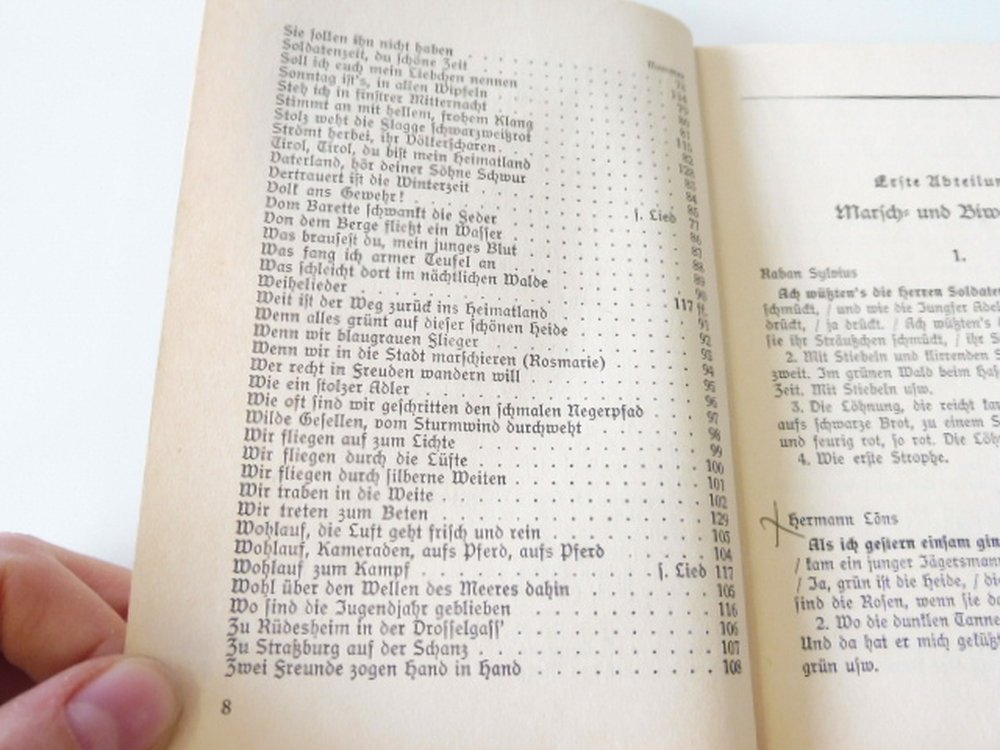

für Volkskunde, 1996), 28.Ģ “Produkte der nationalen Identitätsfabrik, in der die von den sammelnden Wissenschaftlern ausgewählten Lieder – veredelt, gereinigt, nationalisiert – dem Volke wiedergeschenkt werden sollten.” Köstlin, “Wissenschaft als Lieferant von Erfahrung,” 29.ģ “die Bedeutung durch Deutung.” Konrad Köstlin, “Der Wandel der Deutung: Von der Modernität der Volksmusik,” in Volksmusik – Wandel und Deutung: Festschrift Walter Deutsch zum 75. Walburga Haas (Salzburg: Salzburger Landesinst. November 1994 in der Salzburger Residenz, ed. In Volkskunde und Brauchtumspflege im Nationalsozialismus in Salzburg, Referate, Diskussionen, Archivmaterial. Horn-lyrics as an expression of a world alternative to modern urbanity, representedġ “eine neue Kategorie des Liedes, die es so vorher nicht gegeben hatte.” Konrad Köstlin, “Wissenschaft als Lieferant von Erfahrung,” Which can give an idea of a different meaning of folksong. Knaben Wunderhorn by Achim von Arnim and Clemens Brentano (1805/06–1808), One of the earliest and most popular collections during the 19th century was Des The songs as an object of singing but as an object of discussion and inspiration for Nationality and to create increasingly a feeling of nationality. Rural folkloristic forms was seen as an opportunity to describe the phenomenon of So-called spirit of the folk expresses nationality, and therefore the examination of Gradually it became common sense that the Perfect sources to identify the roots of a nation. Their folksongs than from the “prattle of travel reports”. The “thinking and customs of a nation.the history of their fathers” with the help of 6In his opinion the educated society could learn more about 5 This genre became interesting because Herder interpreted it as a symbol The folksong topos has differed from the reality of singing ever since its introductionīy Herder. In this sense Ernst Klusen even spoke inġ969 about the folksong as a matter of “Discovery and Invention”. Tion is a question of its time and ideology. Harsh discussions about whether a song could be called a folksong or not. 3 Up to the present there have been sometimes Old and new ones were assigned to theĬategory if they suited the particular idea of folksong, as Köstlin stressed: Folk music Songs were preferred, the older the better.

The category was new at the time and older The time after the anglophile Johann Gottfried Herder had translated the English term When Köstlin speaks about a “new category”, one must be careful. Songs, purified, cleaned and nationalized them. New category of song, which had not existed in this sense before.” 1 He described it asĪ “product of the construction of national identity”: Scientists collected and selected

The ethnologist Konrad Köstlin wrote in 1994 that the German term Volkslied is “a There are different forms of practicing and publications, which can be regarded as a mirror of desires and utopias of the then protagonists. Folksongs in their traditional interpretation as a symbol of an innocent idyll could be used for producing a counterword to a problematic reality, and as an expression of a nation they were good for creat- ing identities in varying forms. The functions of that practice were different. There even were projects of collecting them on the front, in prisoner-of-war camps and in the hinterland.

Keywords: folksong, Folksong Movement, Youth Movement, cultural propaganda, folksong collecti- ons, national identityĭuring the First World War the singing and collect- ing of folksongs obviously had importance. Received: 6th October 2017 Accepted: 13th October 2017 Obstajajo različne oblike praks in publikacij, ki jih lahko razumemo kot zrcalo želja in utopij takratnih protagonistov. Ljudske pesmi v njihovem tradicional- nem pomenu, kot simbol nedolžne idile, je bilo mo- goče uporabiti kot protiutež negotovi resničnosti, kot izraz naroda pa so bile pripravne za oblikovanje raznovrstnih identitet. Projekti njihovega zbiranja so potekali na celo fronti, v taboriščih za vojne ujetnike in v zaledju. Med prvo svetovno vojno je bilo petje in zbiranje ljudskih pesmi zelo pomembno. Ključne besede: ljudske pesmi, gibanje za ljudske pesmi, mladinsko gibanje, kulturna propaganda, zbirke ljudskih pesmi, narodna identiteta Ljudske pesmi kot »deklice za vse«: o pomenih petja ljudskih pesmi med prvo University of Music and Performing Arts ViennaĪbout the Meanings of Singing Folksongs in the First World War in Univerza za glasbo in uprizoritveno umetnost na Dunaju


 0 kommentar(er)
0 kommentar(er)
